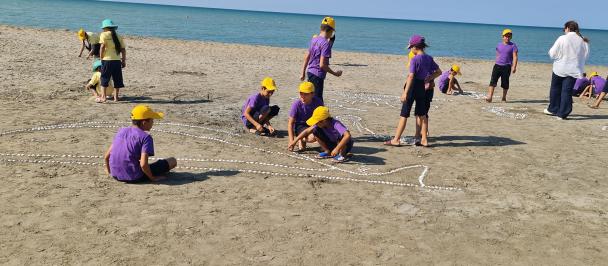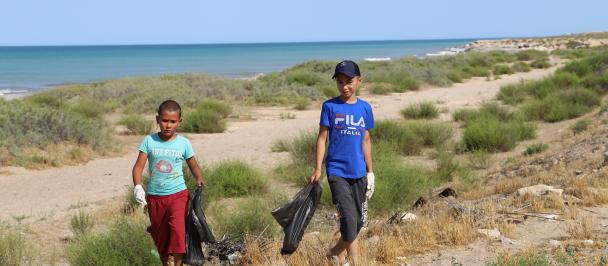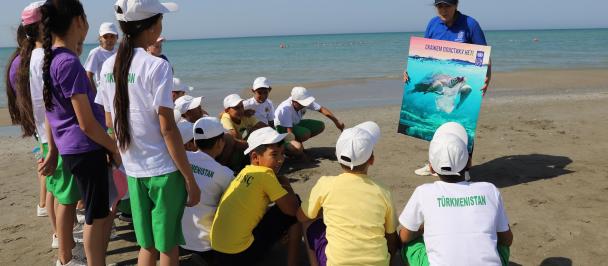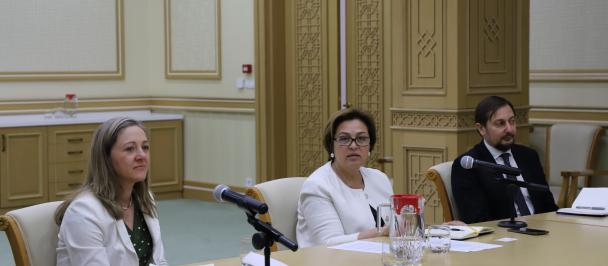Ashgabat, 13 January 2020: Solar power supply systems with total electric capacity of 10 kW have been installed to demonstrate renewable-energy applications and encourage local population to use clean energy instead of diesel-driven power generators to reduce GHG emissions associated with water pumping in three remote villages of central Karakum Desert including Bori in Geokdepe district, Yel and Bashkak in Ak bugday district of the Akhal region.
The joined project of UNDP and the State Committee on Water Management of Turkmenistan “Energy Efficiency and Renewable Energy for Sustainable Water Management in Turkmenistan” financed by Global Environment Facility (GEF) has installed three small demonstration water supply chains in a desert area powered by solar energy expected to benefit about 1200 residents, including about six hundred (50%) women and girls, who currently collect atmospheric condensation for drinking and cattle breeding purposes.
“Turkmenistan’s climatic conditions are highly favourable for the intensive use of renewable energy sources, particularly solar energy. Introduction of small sized renewable energy installations in remote and sparsely populated areas is economically beneficial due to high cost of construction of power transmission lines,” noted Geldi Myradov, UNDP/GEF project manager.
Local population of Bori, Yel and Bashkak is employed mostly in desert cattle breeding of sheep and camels. To water their livestock, shepherds collect atmospheric condensation and rainwater from rooftops accumulating in special receptacles near each home and transport water by car to the gazing fields. The prolonged storage of water leads to the deterioration of its hygienic quality, which over time negatively affects human health.
The situation is worsened by the fact of absence of the electricity to filter and clean the collected water for further use, which forces locals to use diesel generator only few hours per day. Since deficit of water at home creates hurdles for females who primarily manage the households, constant water supply through solar powered systems will help improve sanitation and health conditions in the village.
Implementation of the demonstration project was supplemented by hands-on training for residents on the use and maintenance of the new technology. It is anticipated that these pilots will be replicated across the country to cut the use of diesel for power generation boosting new livelihood opportunities for local communities.
***
UNDP implements a strategic agenda on promoting energy efficiency and renewable energy in the water sector as part of the climate change mitigation efforts. The purpose of the pilot project is to demonstrate renewable-energy applications and encourage local population to use clean energy instead of diesel-driven power generators and to reduce greenhouse gas (GHG) emissions associated with water pumping.

 Locations
Locations



